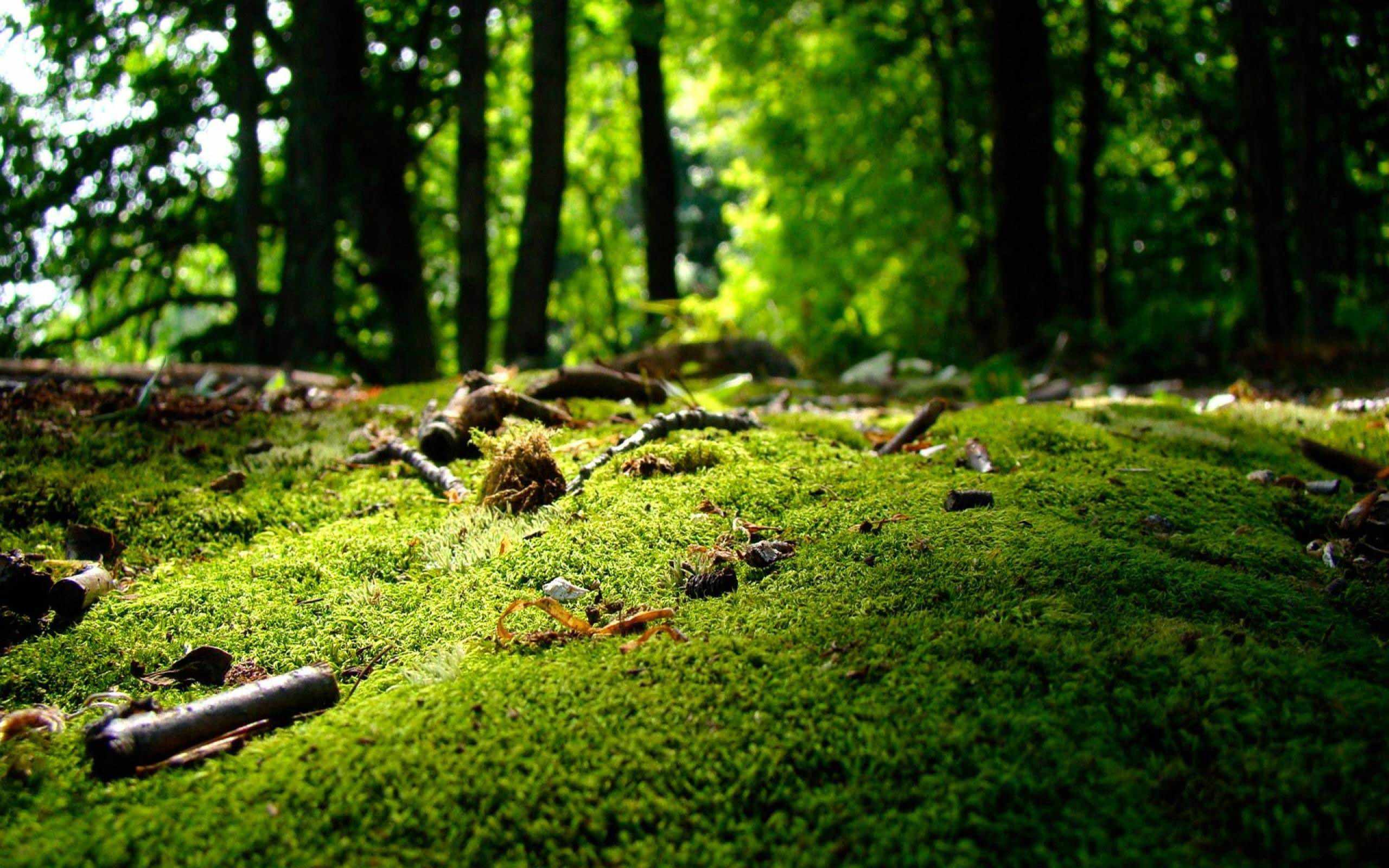Author:
Green Steps
Short summary:
A small citizens' movement from Neulengbach found its way to St. Pölten to learn about the Mobile Campus 4.0 project and the Big Friendly Giants environmental game. We were delighted with the visit on Leopold's Day.

Wednesday, 15 November 2023: The federal state of Lower Austria celebrates its patron saint, Saint Leopold, founder of Klosterneuburg Abbey and, as the Archduke of Babenberg, a founding father of Austrian cultural history. Schools are closed and all offices in the province are closed. At Green Steps, however, the office is already full in the morning and the team is busy preparing for the visit to the Neulengbach hands-on region.
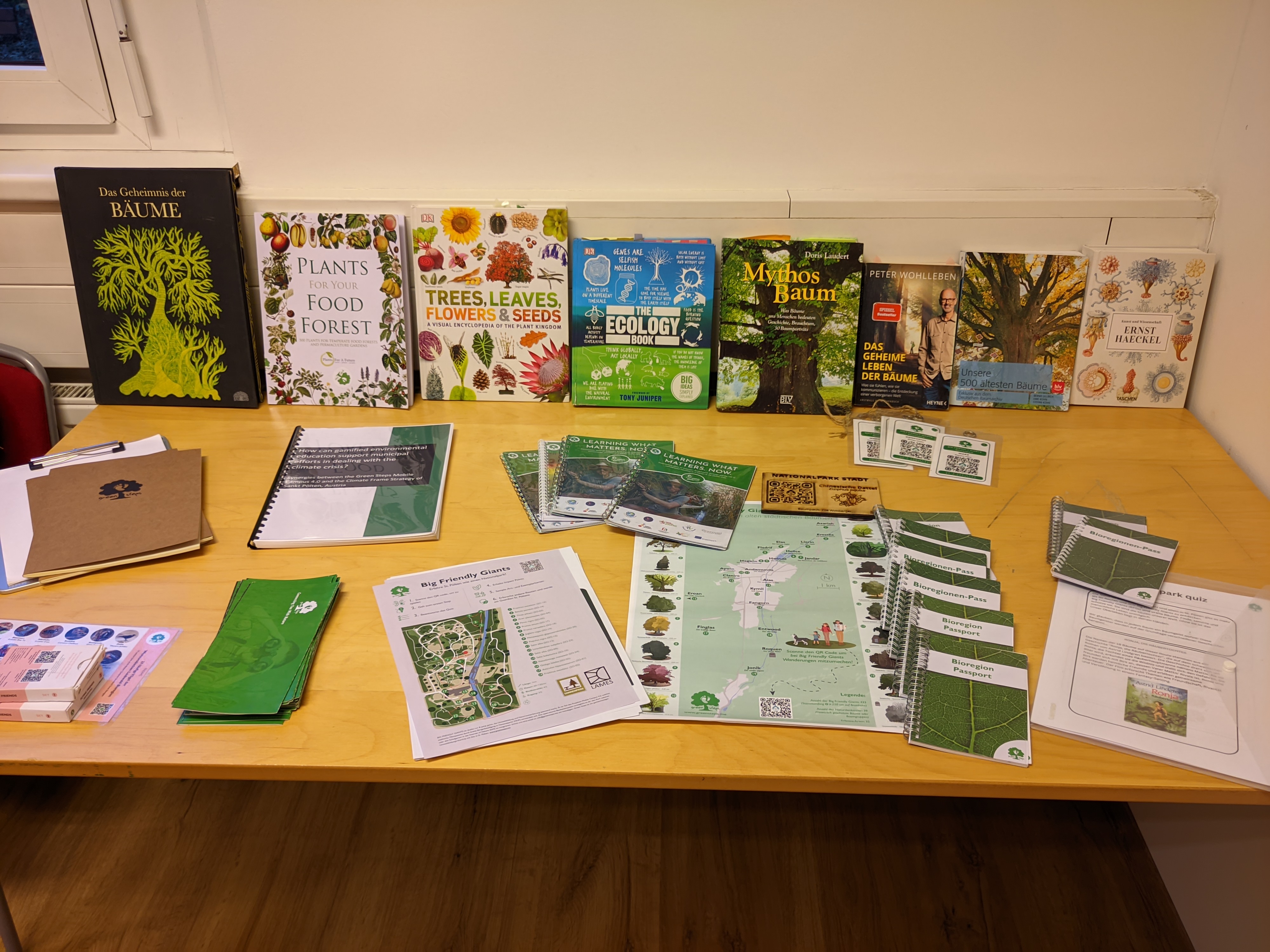
What is Mitmachregion?
Launched in 2016 in the area around Lake Constance, the Mitmachregionen are trying to drive forward a citizen-led transformation with the support of the German Schweisfurth Foundation, one of the oldest German foundations for environmental protection. The ecological turnaround and social integration should happen from the bottom up instead of from the top down, according to the strategy of the movement, which is reminiscent of the Anglo-Saxon Transition Towns and is active in Germany, Austria, and Switzerland
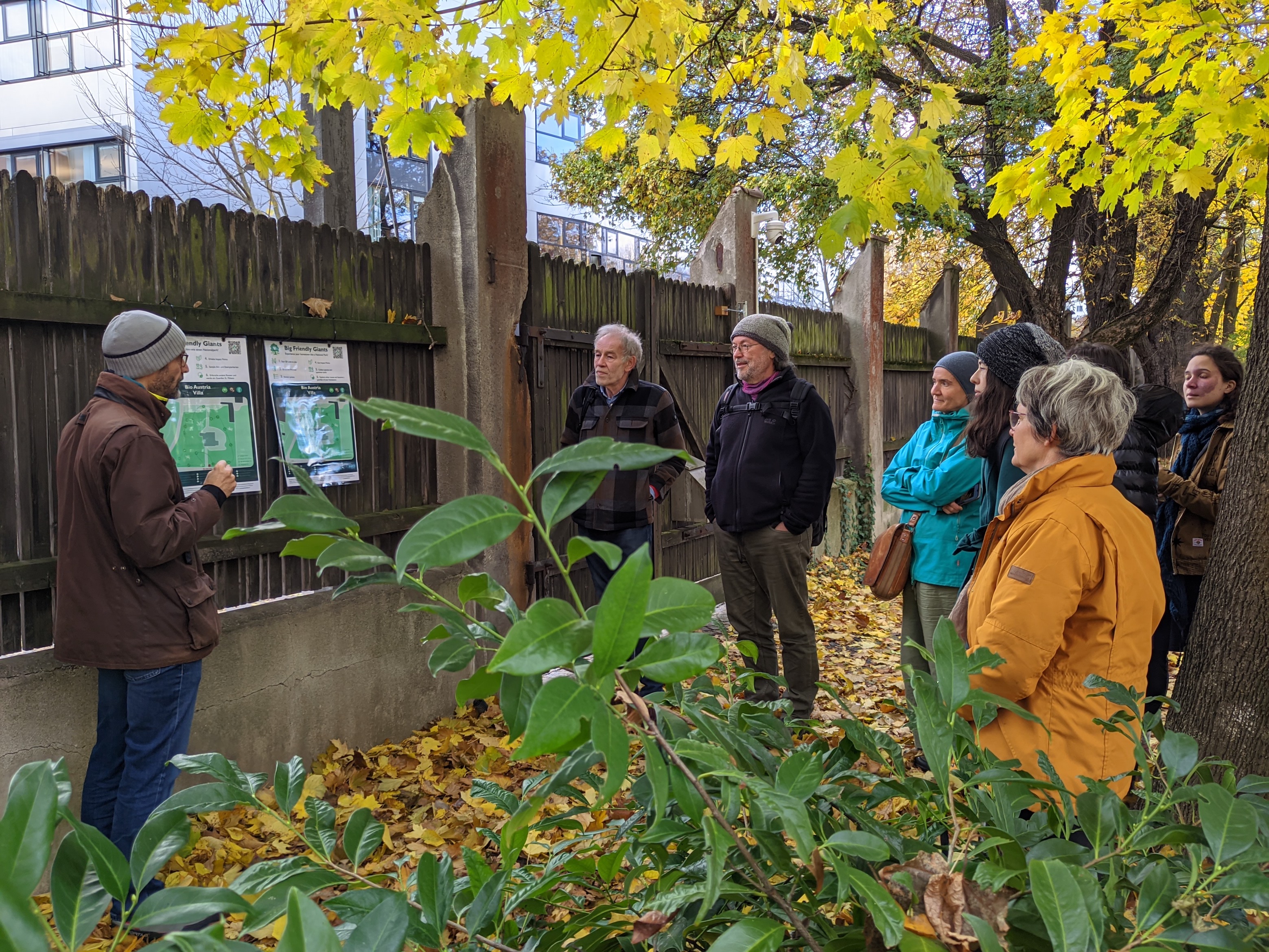
Almost 50 such regional movements have now emerged and the small town of Neulengbach on the edge of the Vienna Woods is one of them. There is a lively exchange between the participatory regions on local strategies that enable and accelerate ecological and social transformation. Proven formats are presented in an action pool, including the environmental education project Big Friendly Giants by Green Steps.
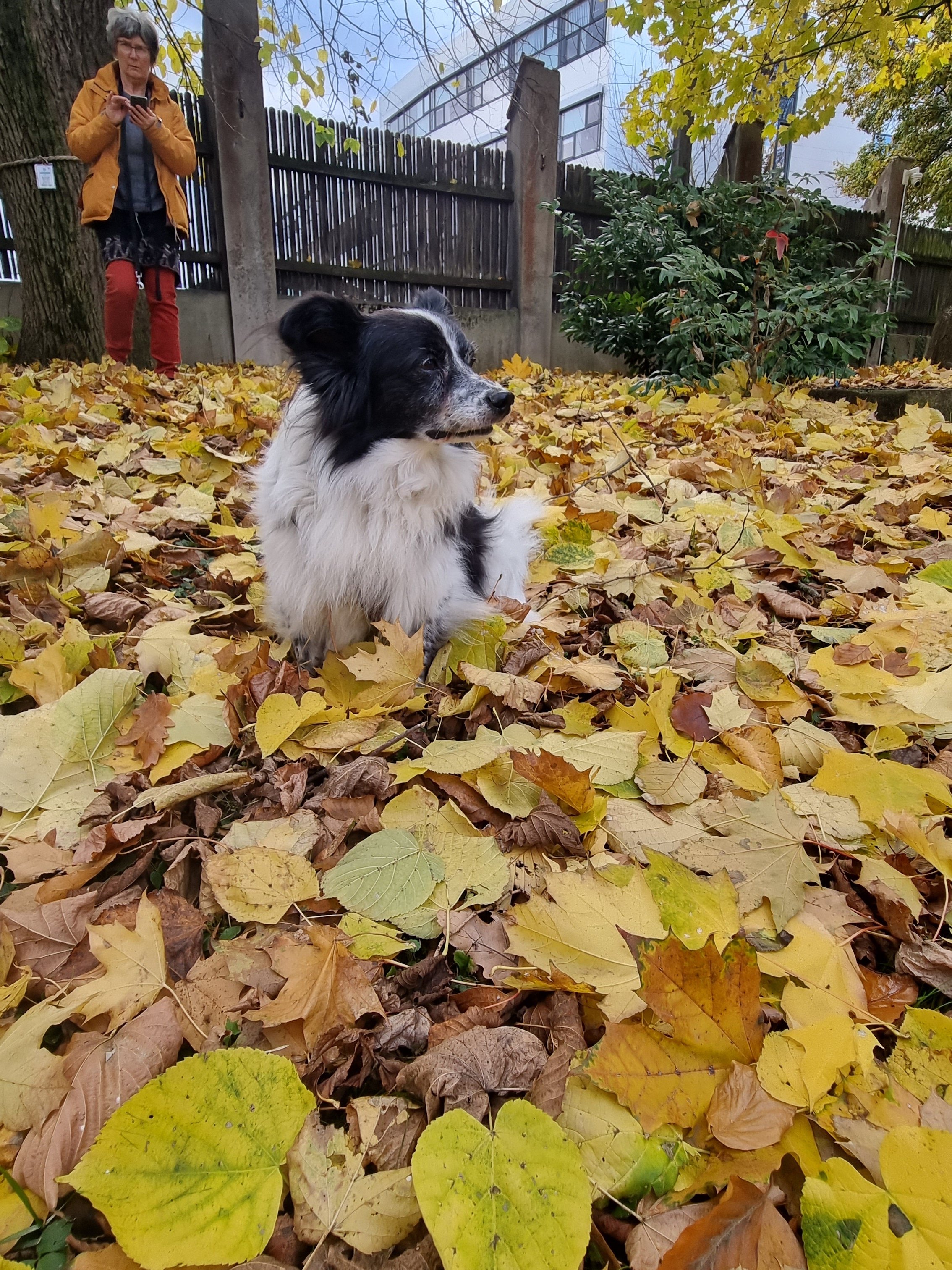
Helmut Wieser, architect and regional moderator of the Mitmachregion Neulengbach, invited an interesting team to St. Pölten to strengthen their connection to nature, understand the ecosystem services of trees and get to know an innovative method of joyful and meaningful learning in the fresh air.
- Barbara Hechtl is a special school teacher in Neulengbach and previously taught for several years at the Integrative Montessori Studio in St. Pölten. She is responsible for half a dozen young people who have been diagnosed with a psychiatric illness.
- Judith Schachinger is a freelance environmental educator and helps schools in Lower Austria to achieve Ökolog certification. Ökolog is the nationwide network for environmental education, which is coordinated by the Institute for Teaching and School Development at the University of Klagenfurt.
- Anita Weis is a former biology teacher who currently supervises young adults in St. Pölten as part of a further training programme offered by the Public Employment Service. Being close to nature is also important to her.
- Erich Heyduck is a curator with the artist group Stachel and has turned his interest to nature, with concepts such as homeostasis occupying him deeply.
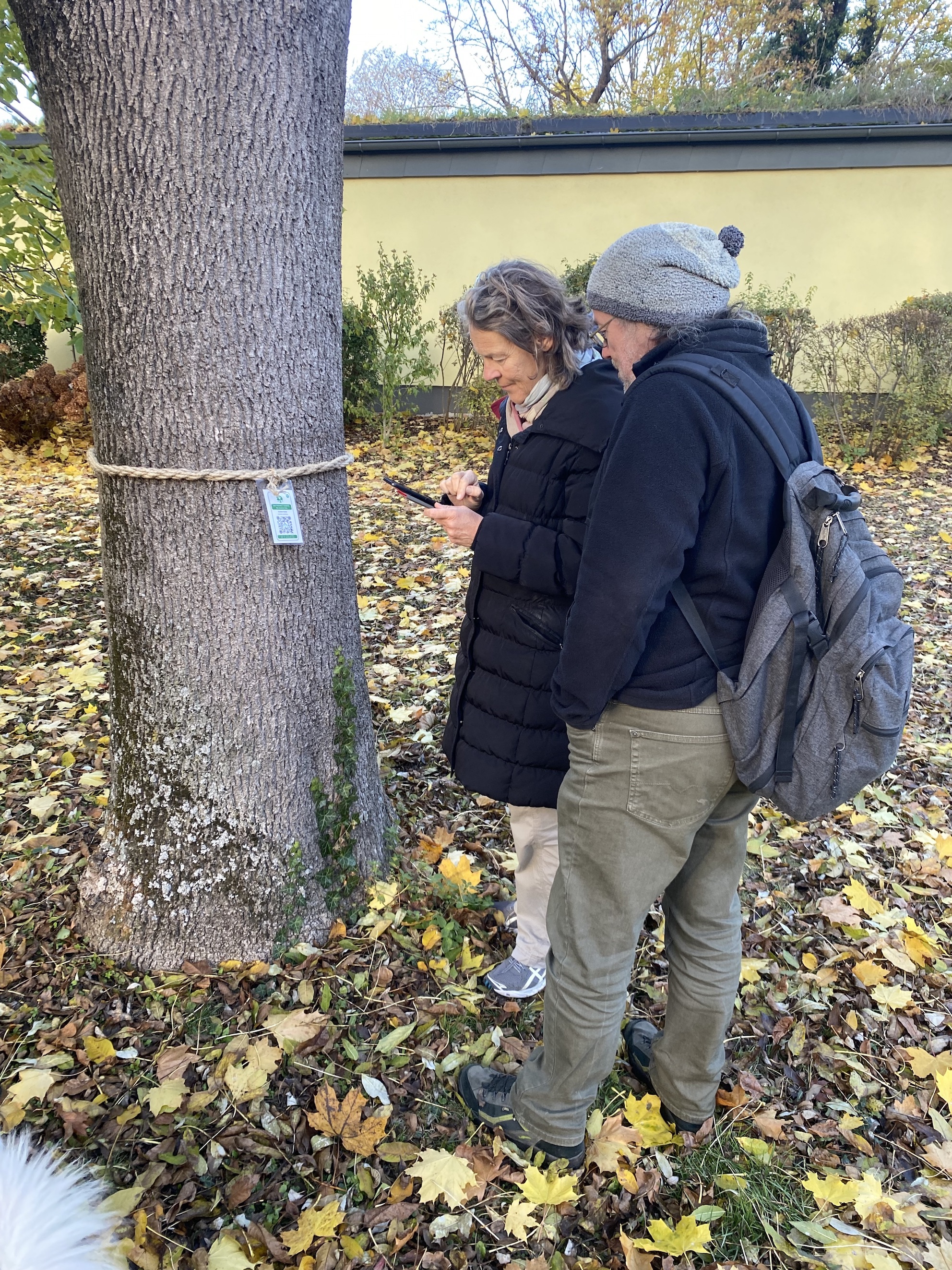
We walk one of our first BFG routes together in a private park opposite the St. Pölten University of Applied Sciences, where the participants get to know the modular system. Everything about this project is designed so that it can be implemented decentrally and from the top down. After a short introduction, everyone - apart from Helmut and Herr Busho - pulls out their mobile phones and sets off on the BFG quest. There are 19 trees of different types to explore. Each tree represents a station at which one or more questions are to be answered via the mobile phone by examining the tree or its surroundings for answers.
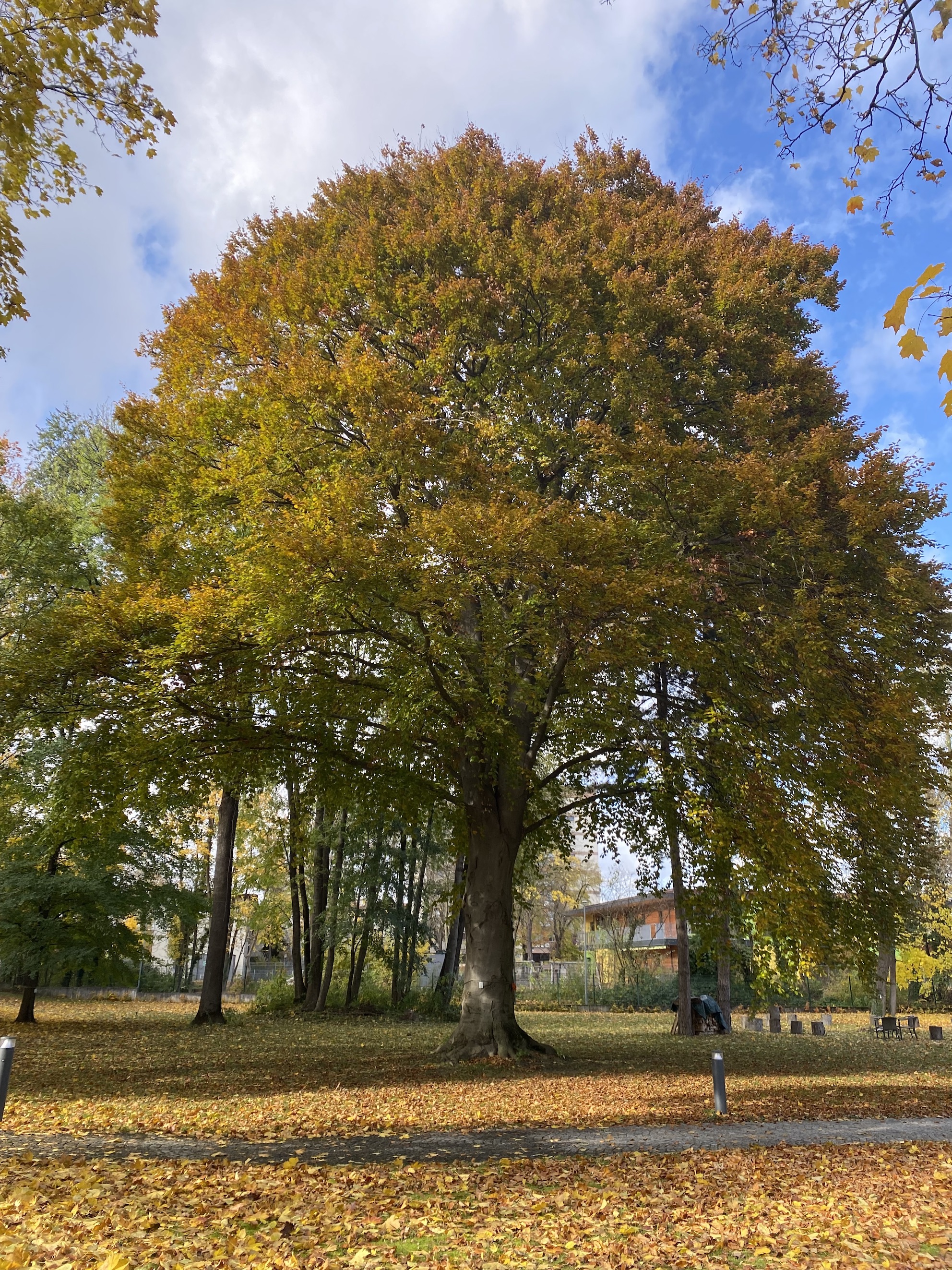
The hike includes three Big Friendly Giants, trees with a trunk circumference of more than 2.5 metres that are around 100 years old or older. You are delighted to receive the first trading cards on your digital account and are surprised to learn that these cards are also available as printed trading cards for primary school children. The game ends with a group photo under Zeus, a European beech that has been declared a natural monument and dominates the park with a trunk circumference of almost 4 metres and an expansive crown.
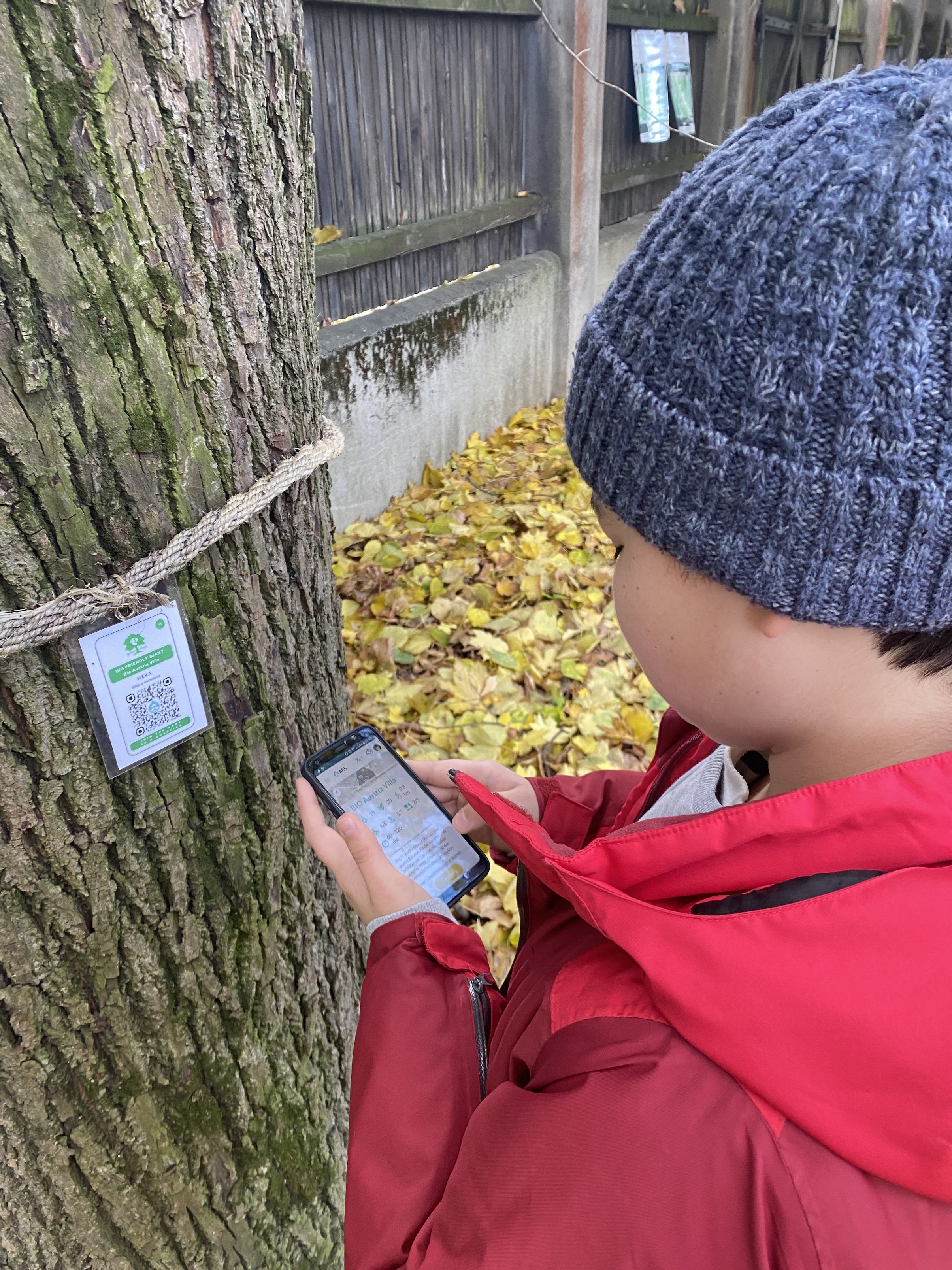
We then map the area together so that this function of the mobile web app is also easier to understand. The Mobile Campus 4.0 modular system aims to equip schools and communities with the tools they need to enable a playful but structured experience of the natural environment. The mobile phone becomes a multifunctional tool for the homo faber, with which he can practice environmental protection and environmental education.
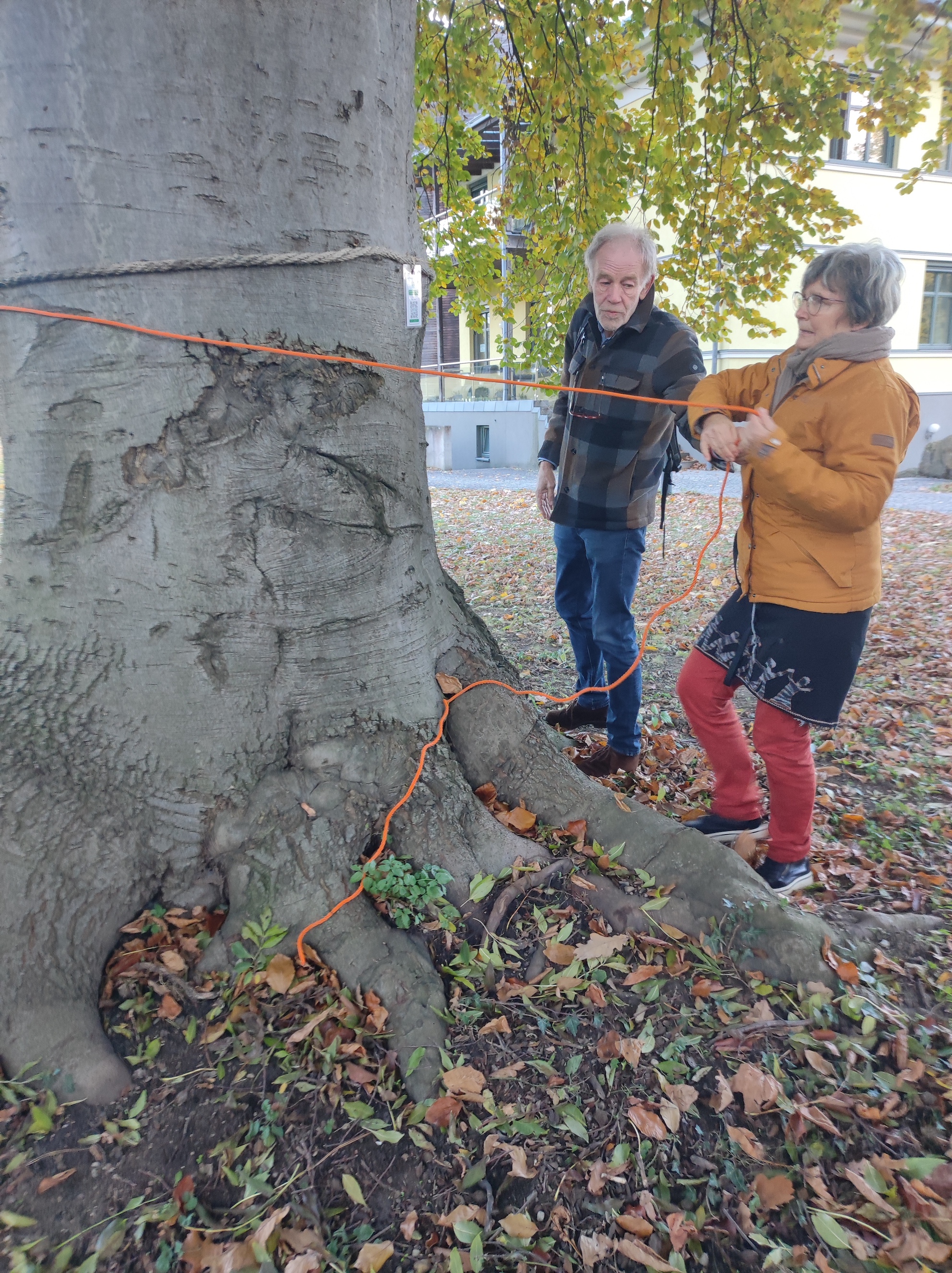
Trees can be easily mapped and then described with natural and cultural characteristics and summarised in routes. The Green Steps ARK thus fulfills several functions at once, especially for small communities: it is a Wikipedia-like tree register that not only everyone can contribute to, but which can also be viewed by everyone without restriction. With the help of iTree and the Centre for Urban Nature at the Technical University of Munich, the Green Steps ARK also visualizes the ecosystem services of the mapped trees and thus enables the value of trees within our habitats to be made visible in a playful way.
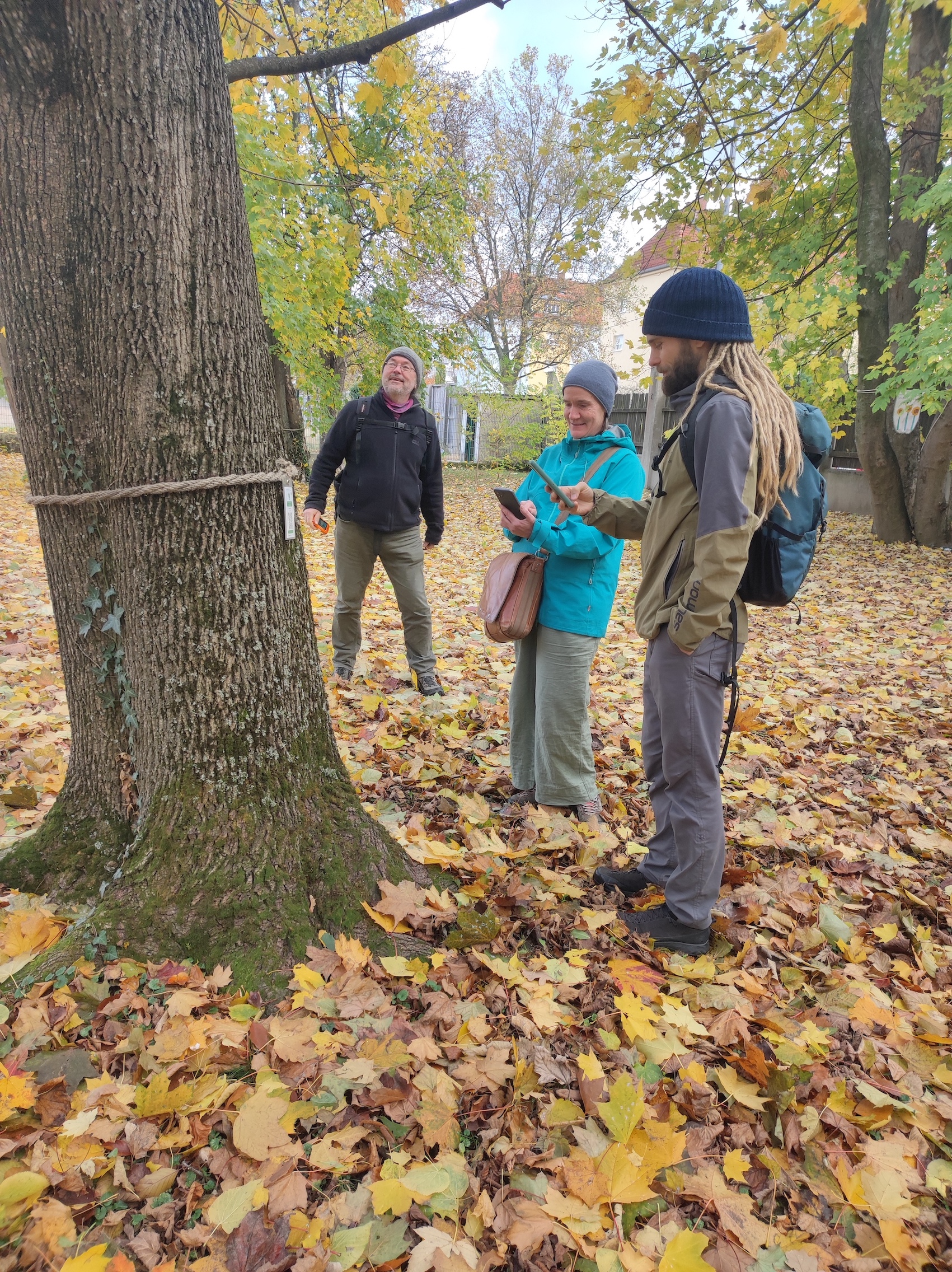
Late autumn finally shows us its limits and we sit down for tea and biscuits in our office for a chat. Everyone is happy about this except for Herr Busho, who would have liked to stay longer in the park. However, the Green Steps team is grateful for the feedback we receive for our work and is looking forward to planning one or two routes in Neulengbach with the team from the Mitmachregion in the near future.
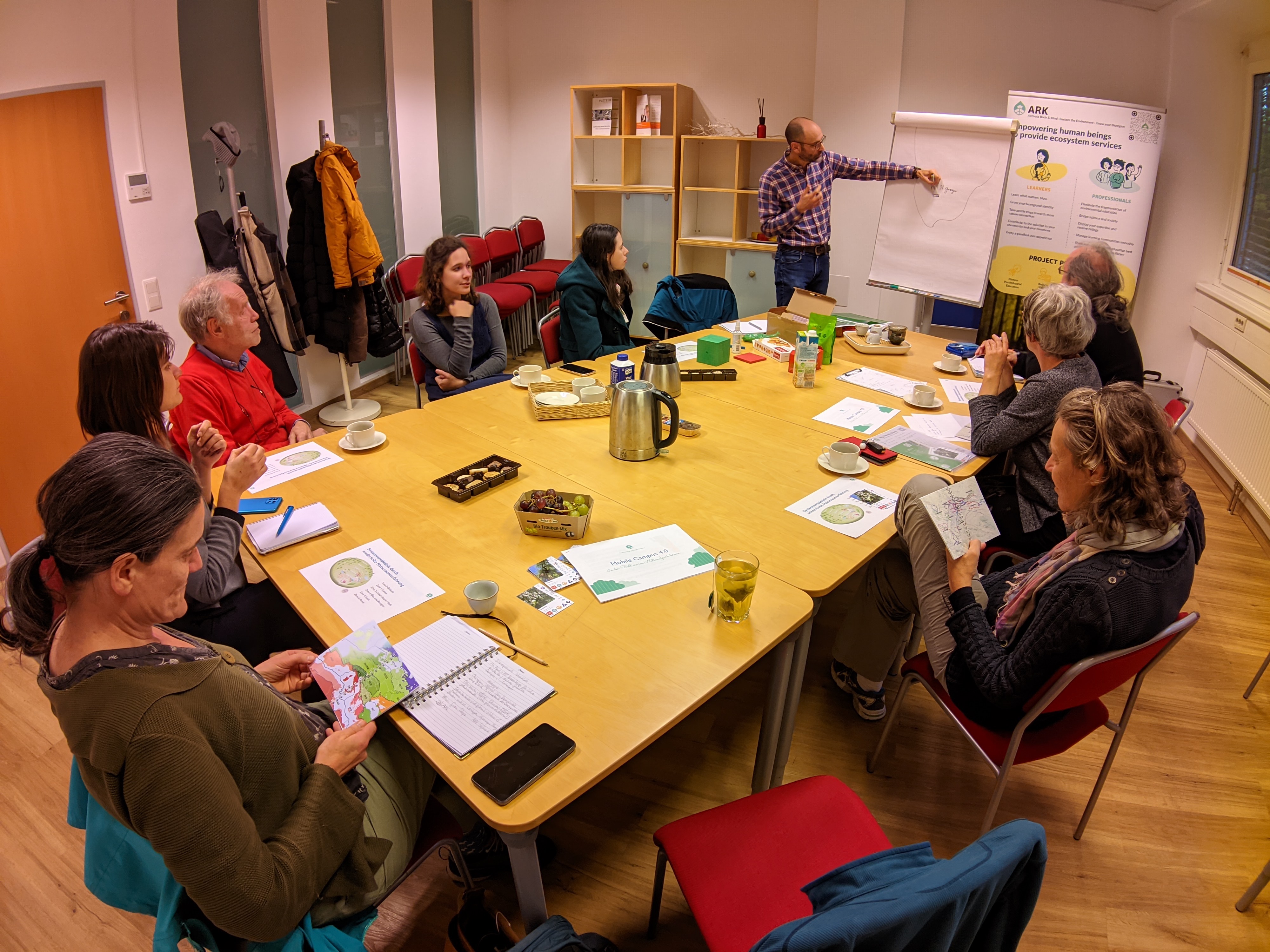
Are you also interested in realizing this project in your community or at your school? Then download our project description here and get in touch with us at info@greensteps.me
Read more
• Mitmachregionen: https://mitmach-region.org/
• Schweisfurth Stiftung: https://schweisfurth-stiftung.de/
• Transition Towns: https://transitionnetwork.org/
• Mitmachregion Neulengbach: https://www.noen.at/neulengbach/mitmach-monat-mai-mitmach-region-neulengbach-und-umadum-praesentiert-sich-neulengbach-366051141
• Big Friendly Mitmachregionen Aktionspool: https://wir.mitmach-region.org/aktionsbeschreibung/big-friendly-giants-in-der-heimatgemeinde-wie-im-nationalpark-lernen/
• Helmut Wieser, Tanz der Teile: https://www.tanzderteile.at/
• Barbara Hechtl: https://www.neulengbach.gv.at/Sonderschule_St_Christophen
• Judith Schachinger, Ökolog: https://www.oekolog.at/
• Anita Weis, ZIB: https://www.zib-training.at/
• Erich Heyduck: https://www.stachel.art/




